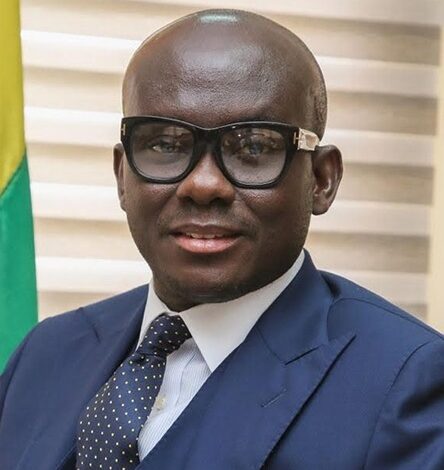
Of course, the Attorney-General is entitled to appeal to the Court of Appeal against the sentence delivered at the Accra High Court, jailing Aisha Huang (the Chinese “galamsey queenpin”) on 4 December 2023.
Whilst announcing his intention to appeal, the Attorney- General criticised members of the public, who (he said) had made “various misleading
comments” in reaction to the 4 December judgement.
It is a pity that the Attorney General did not cite any examples of the “misleading comments” made by members of the public. However, It must be pointed
out that the nature of the case, {and even more
important) the previous behaviour of the office of the Attorney-General in relation to it, should have
prepared him for such comments as he now complains of.
In first place, a “nolle prosequi” request by a prosecuting authority stopping a prosecution in its tracks, is a relatively unusual procedure in Ghana. Yet not only did the Attorney-General request and obtain a nolle prosequi in favour of Aisha Huang but also, he failed to fully take the Ghanaian public into his confidence, with regard to the the reasons that made him stop the prosecution.
Next came the sensational news that Aisha Huang had, rather than showing gratitude for the leniency shown by the Ghana Government in withdrawing its prosecution of Aishan Huang, had disregarded the Ghana
Government’s deportation order against her and secretly returned to Ghana. The public would have
concluded that she had returned to engage in
galamsey once again (since investment in galamsey is, necessarily, a “continuing” (albeit illegal) enterprise.
Perhaps the embarrassment which the whole Aisha
Huang business has caused our Government will persuade our authorities,– going forward– to train our law enforcement agencies more robustly in the detection and prosecution of crimes, the commitment of which demands highly-organised and,sophisticated “backup” services.
We haven seen, for instance, that arresting and prosecuting those who dig for gold at galamsey
sites, while leaving their employers untouched, cannot advance the struggle against galamsey. What about training Government agents in methods of detecting financial crimes (such as money-laundering)? The USA, some countries in Latin America, and those areas in
Italy that have succeeded in fighting the Mafia (for instance) can teach us how to “follow the money”.
One wonders, specifically, whether when Aisha Huiang returned to Ghana, secret surveillance methods
were used to see what she was up to? If that had been done, wouldn’t evidence have been gathered to
lead us to her ‘post-return’ galamsey activities?
Meanwhile, here is the record of Aisha Huang’s dalliances in Ghana, as reported by the Attorney-General, in his statement:
QUOTE: “In 2017, Aisha Huang was charged with
illegal mining offences committed
between 2015 and May, 2017….. On 19th
December 2018, the Attorney- General entered nolle prosequi and terminated the trial.
The Comptroller-General of Ghana
Immigration Service revoked her permit to
remain in Ghana indefinitely and ordered her immediate repatriation to China…
“Subsequently, Aisha Huang was found to
have re-entered Ghana, contrary to the
order of the Comptroller- General.
She was arrested again on
2nd September 2022, in Kumasi.
“Immediately, the Attorney- General directed
the prosecution of Aisha Huang
for all past and present offences committed
by her. After a trial in which the prosecution
called 11 witnesses, and the accused
person gave evidence in her defence,
the High Court, presided over by Her
Ladyship Justice Lydia Osei- Marfo, on
4th December, 2023, convicted the accused
of all offences and sentenced her to
various terms in prison to run concurrently.
“i. Counts one and two – four (4) years and
six (6) months in prison (in hard labour) as
well as a fine of three thousand (3000)
penalty units;
ii. Count three – twelve (12) months in
prison (in hard labour);
iii. Count four – one thousand (1000) penalty units or in default, to serve a term of three (3) years
imprisonment.
“The learned judge considered the fact that
the offences of undertaking a mining
operation without a licence and facilitating
the participation of persons engaged
in a mining operation without a licence
(with which the accused was charged)
were committed between February, 2015
and May, 2017, at a time that the Minerals and Mining
(Amendment) Act, 2019 (Act 995), which
imposes a punishment of a minimum of
twenty (20) years in prison for a
non-Ghanaian, together with a fine of
between one hundred thousand penalty
units and three hundred and fifty thousand penalty units,
had not been passed.
“In the view of the trial judge, article 19(6)
of the Constitution prohibits a penalty from
being imposed for a criminal offence, that
is more severe in degree …
[than could have been imposed for the
same offence, by earlier legislation, such as the Minerals and Mining (Amendment) Act,
2015 (Act 900), which mandated a fine of not
more than three thousand penalty units or
to a term of imprisonment of not more than five years
or to both.
“The learned judge thus, taking account of
the fact that the accused had already
spent more than one year in custody,
sentenced her in the manner stated [earlier.]
BY CAMERON DUODU



